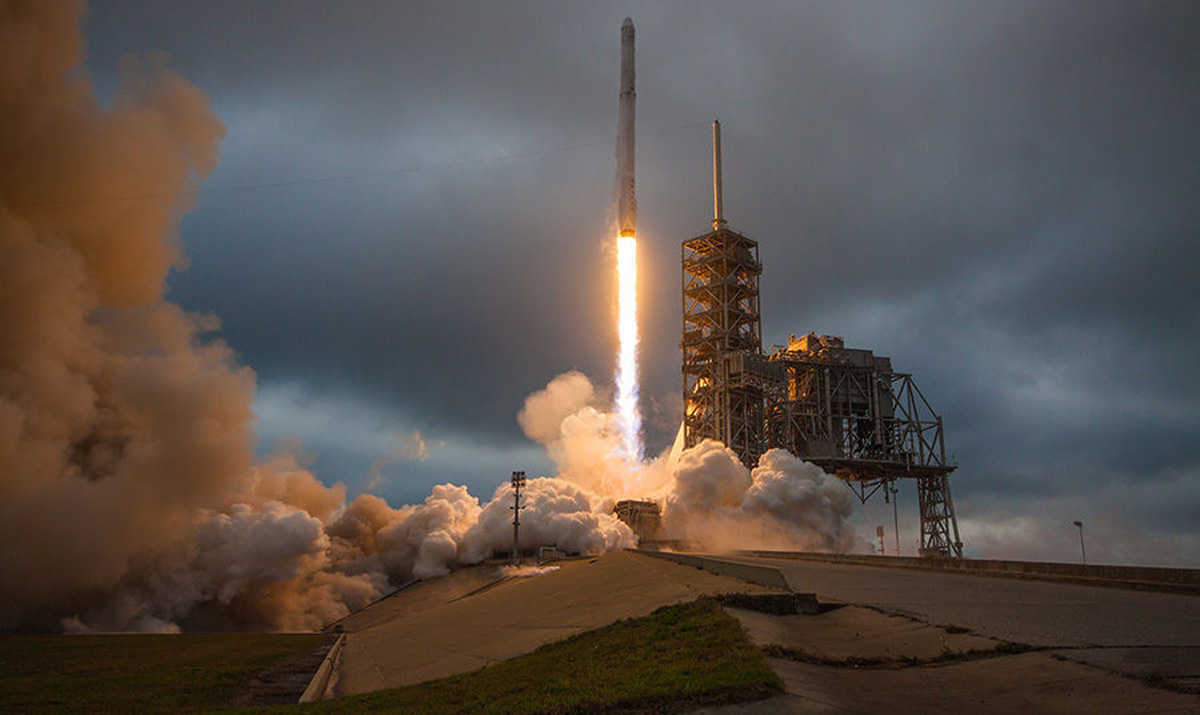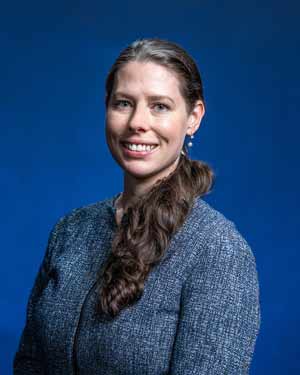Growing Commercial Space Industry Needs Policy Experts

Students train in policy and regulation while developing their science and technology background.
For Michael Pope, the enormous potential and challenges of the commercial space industry translate into an exciting career option. A junior in Embry-Riddle’s Commercial Space Operations program, Pope plans to work in the policy and regulations side of the space industry.
“As the commercial space industry continues to expand,” said Pope, who has been interested in space since he was a small child, “the number of policy jobs in the industry will grow as well. A policy concentration within Embry-Riddle’s Spaceflight Operations degree program will enable students to gain the knowledge to meet that growing need.”
Pope considers himself and his classmates very lucky that Embry-Riddle hired Dr. Sara Langston at the end of last year to head the university’s Spaceflight Operations policy track.
Langston has a law degree with a specialization in international law, a Master of Law in aerospace law, and a Ph.D. in the history and philosophy of science focused on human spaceflight. Before joining Embry-Riddle in December, she worked in Washington, D.C., in the aerospace sector. She has worked and published in the areas of space law, bioethics for space, space environmental ethics, medical risks for commercial space travelers and the legal and cultural implications of commercializing space.
Promoting Communication
Born in the Middle East and raised in Europe, Langston brings a crucial international perspective to space-related policymaking, which based on the fact that while many nations rely on space-based programs for everything from prediction of natural disasters to global communications, no one nation owns space.
“I aim to help people communicate with each other across disciplines and cultures,” Langston said. “For space, we need to identify the issues and concerns for policy frameworks and decision-makers going forward. To do that we need to understand what that actually means at both the international and high policy levels as well as at the lower practical levels, for implementation on the ground.”

Dr. Sara Langston (Photo: Embry-Riddle/Daryl LaBello)
For instance, as space becomes increasingly congested with satellites and thousands of other objects in orbit, cooperative policies are needed to regulate and coordinate the increasing traffic. This will help prevent collisions and minimize the impacts of problems such as space debris.
More generally, Langston said, policymaking needs to address space sustainability. She asked, “How can we ensure our continued access to and use of space for peaceful purposes — to include the use of space for economic benefit and improving the quality of life on Earth?” She added that interrelated issues include orbital crowding and debris, space traffic management, radio frequency interference and space weather — “and how all these issues impact our infrastructure and socioeconomic dependency on satellites.”
These issues, Langston said, “present very interesting challenges, requiring a range of innovative and creative solutions from both the international policy side as well as satellite developers, entrepreneurs and space startups.”
Pope said that, with the addition of Langston to the Spaceflight Operations faculty, the opportunities for policy students “are endless.” He said her support for extracurricular projects and on-campus clubs gives students hands-on experience and allows them to gain crucial insight into the policy side of the industry before graduation.
One such student organization-led project is the development of a high-altitude launch platform for collegiate-level rockets to help them reach greater altitudes.
“I have been helping them to connect with the appropriate folk in industry and talking with the FAA Office of Commercial Space Transportation to learn how to do this, and identify the applicable permits, regulations and policy implications,” said Langston. “This way, they are taking classroom knowledge and actually applying it to developing a hands-on technological apparatus and operation, as well as building relationships with the authorities and regulators to ensure compliance.”
Langston said the space policy program at Embry-Riddle is novel, in that it exposes students to real science and technology so that they can “tap into the space realm with the broadest possible set of skills.”
“The program provides a unique opportunity for our students to be exposed to high-end technologies and space activities alongside policy education,” said Langston. She added that this lets them acquire “not only the analytical acumen for being able to apply appropriate policy and regulations to space activities, but also invaluable hands-on experience and skills with aerospace technologies and operations in a multidisciplinary environment.”
— By Michaela Jarvis
Posted In: Human Factors | Space
